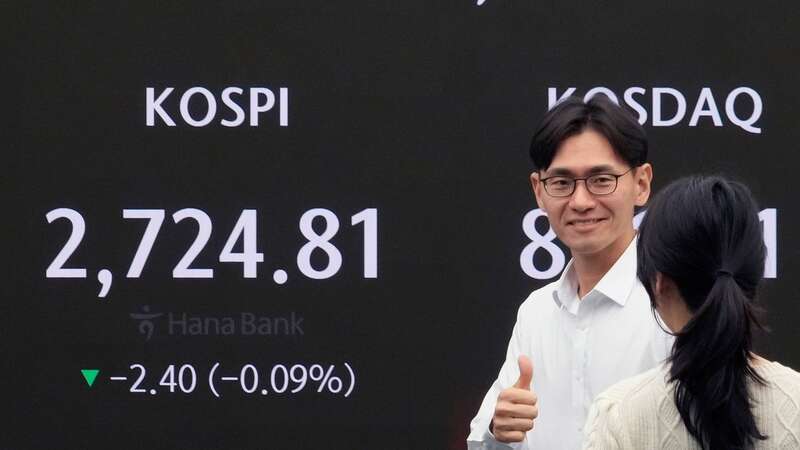
Global shares were mixed in muted trading Tuesday after US stock indexes were little changed ahead of the release of inflation data.
Over in Europe, France's CAC 40 dipped slightly by less than 0.1% to 8,203.71 early in the session, while Germany's DAX dropped by 0.2% to 18,697.53. Meanwhile, Britain's FTSE 100 experienced a modest rise of nearly 0.2%, reaching 8,428.44.
Futures for the Dow Jones Industrial Average and the S&P 500 remained relatively unchanged. In Asia, Japan's benchmark Nikkei 225 climbed by 0.5% to close at 38,356.06. However, Australia's S&P/ASX 200 fell by 0.3% to 7,726.80, and South Korea's Kospi edged up by 0.1% to 2,730.34.
Chinese markets held steady as traders anticipated an announcement from the Biden administration regarding an increase in tariffs on imports from China. Hong Kong's Hang Seng decreased by 0.2% to 19,073.71, while the Shanghai Composite slightly declined by less than 0.1%, finishing at 3,145.77.
Market watchers are also keeping a close eye on inflation indicators to better understand economic growth directions and the strength of the dollar. "Today marks a significant day for both Germany and the U.S.A. as they are set to unveil crucial economic data," commented Luca Santos, a market analyst at ACY Securities, highlighting the importance of consumer price data from Germany and producer costs in the US.
 Meghan's response to 'angry black woman' trope as 'difficult' claim resurfaces
Meghan's response to 'angry black woman' trope as 'difficult' claim resurfaces
"Despite their different focuses, both indices offer insights into how inflation is shaping society," added Santos. On Monday, the S&P 500 saw a slight dip of less than 0.1%, hovering just 0.6% below its record high set at the end of March. The Dow Jones Industrial Average fell by 0.2%, while the Nasdaq composite gained 0.3%.
After a tough April, stocks have seen a broad rally this month, fueled by renewed optimism that inflation might decrease sufficiently to prompt the Federal Reserve to lower its main interest rate later in the year. A crucial moment for these hopes will come on Wednesday, with the US government's latest monthly inflation update.
This week will also see reports on inflation affecting wholesalers and sales figures from US retailers, which could indicate whether concerns about a "stagflation" scenariowhere high inflation combines with a stagnant economyare justified. Optimism is growing that the economy can steer clear of stagflation and achieve a balance where it cools enough to manage inflation but remains strong enough to avoid a severe recession.
Adding to the positive sentiment, Federal Reserve Chair Jerome Powell recently reassured financial markets by stating that the Fed is more likely to cut rates than to raise them, despite inflation being higher than expected so far this year. The earnings season is almost over, with reports already in for more than 90% of companies in the S&P 500. However, this upcoming week includes Walmart and several other big names, which could provide further insight into the state of US households.
Concerns are growing about potential weaknesses in US consumer spending, which has been a key factor in keeping the economy out of a recession. Lower-income households seem to be particularly affected due to persistent high inflation. This week, the Biden administration is expected to announce an increase in tariffs on electric vehicles, semiconductors, solar equipment, and medical supplies imported from China, according to sources familiar with the plan. Tariffs on electric vehicles could potentially quadruple to 100%.
In other trading news, benchmark US crude dropped 17 cents to $78.95 a barrel in electronic trading on the New York Mercantile Exchange. Brent crude, the international standard, fell 18 cents to $83.18 a barrel. The US dollar increased to 156.45 Japanese yen from 156.21 yen. The euro was valued at $1.0781, down from $1.0790.
Read more similar news:
Comments:
comments powered by Disqus
































